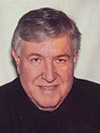
A Watergate lesson: Secret money means payoffs, bribes and extortion
COMMENTARY | October 292, 2010
Some are comparing today’s secret campaign contributions with those in the Watergate scandal. Barry Sussman describes the criminal money fraud in the early Nixon years and concludes that, bad as it was, the problem is much worse now.
By Barry Sussman
bsussman@niemanwatchdog.org
The newest wave of massive, secret campaign financing is increasingly being likened to the illegal corporate campaign contributions that were part of the Watergate scandal (see Jill Abramson of the New York Times and Bloomberg’s Albert Hunt). The comparison is apt -- but the problem actually seems much worse today.
Secret contributions were a driving force behind the criminal activities in the Watergate scandal. They included million-dollar payoffs, bribery, and regular, organized extortion of companies and individuals, both American and foreign, by operatives for Richard Nixon.
One result of Watergate was the passage of new, tighter campaign finance laws in 1975. That’s what Democratic Party Chairman Timothy Kaine was talking about when he charged on October 14 that there is “a concerted effort on the Republican side of the aisle to reverse what I think is a 30-year trend towards openness and transparency and to instead maximize the funding of campaigns through non-reportable entities where donors are not disclosed.”
Kaine said that “this is a huge story.” His words amounted to a plea for some watchdog reporting -- and they couldn’t be more justified.
The campaign finance outrages were almost a non-issue in the Watergate scandal until they burst into view in the latter stages of the Senate Watergate Committee hearings. That’s because the Nixon Justice Department successfully persuaded the initial Watergate prosecutors not to link them to the break-in.
The first discovery came early, when investigators traced $114,000 found in the Miami bank account of Bernard Barker, one of the burglars caught in the Democratic offices at the Watergate office building in June 1972. Eighty-nine thousand of it had been transferred from Mexico in the laundering of a secret contribution from a Texas firm, Gulf Resources.
The assistant U.S. attorneys handling Watergate knew about this money within five days of the arrests, but were told by higher-ups in the Justice Department not to investigate it, and they didn’t. On June 22, the sixth day after the break-in, then-White House counsel John Dean, in a ruse, told acting FBI director L. Patrick Gray to keep the FBI away from the money, too, lest it expose a CIA operation in Mexico.
And on the following day, Richard Nixon instructed his aides Bob Haldeman and John Ehrlichman to have the CIA take part in this lie. The president’s preparation of Haldeman later became one of three “smoking gun” tapes that, when made public, led directly to his resignation in August 1974.
What Nixon was trying to hide so desperately was his ongoing, massive, fraudulent fundraising. He succeeded initially, as the head of the CIA, Richard Helms, and his No. 2, Vernon Walters, went along with the plan. But FBI director Gray forced their hand by asking for a statement in writing, which they would not deliver.
In all, $22 million in secret contributions were uncovered. That figure, even in 2010 dollars, is peanuts compared to the secret contributions that are legal now. More important than the dollar amount was the perversion of democracy that took place -- and that almost certainly will be repeated in the future unless the laws are changed. Or, rather, it probably is already being repeated, and to some extent never really stopped. Without some hard reporting, we may never know.
Starting shortly after Richard Nixon took office, bad money began gushing into the Nixon coffers. It sometimes came to Washington in big bundles of cash. The Nixon impeachment charges included as supporting material references to payoffs from ITT and other large firms, and from special interests, including $2 million from milk producers, $200,000 from a criminal (Robert Vesco) to block legal action, and even $200,000 from McDonald’s in return for permission to charge more for a quarter-pounder at a time when wage and price controls were in effect. Item after item cites criminal fraud and conspiracy, bribery and extortion.
Watergate was sometimes said to be politics as usual. That’s probably true for the campaign contributions part of the scandal. Many big donors have always been investors, paying for a lot more than access. What made the Nixon effort unusual was how highly developed, mean-spirited and brazen it was.
But it was also small change compared to the $250 million or so in undisclosed funds expected to play a big role in the off-year 2010 elections.
Does Rupert Murdoch get more than access when he gives millions to Republicans? Do big insurers, telecoms, the defense industry and others expect only access, or actual payback? Does anyone doubt that Karl Rove knows how to strong-arm companies? If he doesn’t, then possibly Fred Malek, who every now and then apologizes for his loathsome activities as an aide to Nixon, can offer guidance? Malek is one of the fundraisers active in obtaining secret money now.
On Oct. 18, Bloomberg’s Albert Hunt predicted that “the U.S. is due for a huge scandal involving big money, bribery and politicians…think Watergate.”
Hunt would be right except for one question: If corporations and other special interests fill a forest with money but no one reports the politicians picking it up, is that a scandal?
Sussman’s Watergate book, “The Great Coverup,” first published in 1974, will soon be reissued as an ebook.
|
|
Barry Sussman is the editor of the Nieman Watchdog Project. He is the author of The Great Cover-Up: Nixon and the Scandal of Watergate, now in its fourth edition. 
E-mail: sussmanb1@gmail.com
|
Follow the money!
Posted by
Jon
10/292/2010, 10:38 PM
And of course it's a huge and poorly covered story that the money is bigger, better hidden, and more directly purchasing results than anything Nixon did.
|




